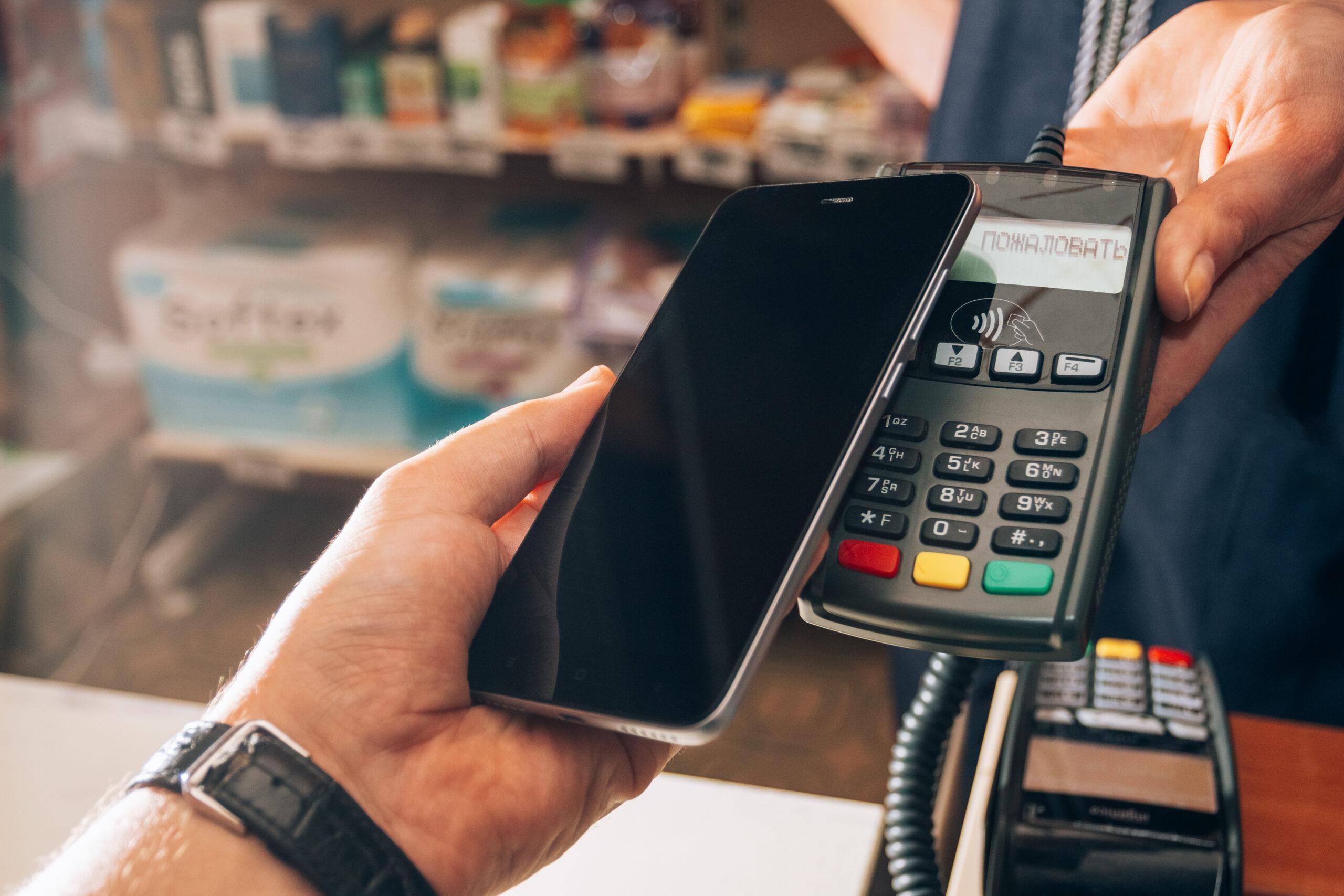MENU
Starting a Business
- Best Small Business Loans
- Best Business Internet Service
- Best Online Payroll Service
- Best Business Phone Systems
Our Top Picks
- OnPay Payroll Review
- ADP Payroll Review
- Ooma Office Review
- RingCentral Review
Our In-Depth Reviews
Finance
- Best Accounting Software
- Best Merchant Services Providers
- Best Credit Card Processors
- Best Mobile Credit Card Processors
Our Top Picks
- Clover Review
- Merchant One Review
- QuickBooks Online Review
- Xero Accounting Review
Our In-Depth Reviews
- Accounting
- Finances
- Financial Solutions
- Funding
Explore More
Human Resources
- Best Human Resources Outsourcing Services
- Best Time and Attendance Software
- Best PEO Services
- Best Business Employee Retirement Plans
Our Top Picks
- Bambee Review
- Rippling HR Software Review
- TriNet Review
- Gusto Payroll Review
Our In-Depth Reviews
- Employees
- HR Solutions
- Hiring
- Managing
Explore More
Marketing and Sales
- Best Text Message Marketing Services
- Best CRM Software
- Best Email Marketing Services
- Best Website Builders
Our Top Picks
- Textedly Review
- Salesforce Review
- EZ Texting Review
- Textline Review
Our In-Depth Reviews
Technology
- Best GPS Fleet Management Software
- Best POS Systems
- Best Employee Monitoring Software
- Best Document Management Software
Our Top Picks
- Verizon Connect Fleet GPS Review
- Zoom Review
- Samsara Review
- Zoho CRM Review
Our In-Depth Reviews
Business Basics
- 4 Simple Steps to Valuing Your Small Business
- How to Write a Business Growth Plan
- 12 Business Skills You Need to Master
- How to Start a One-Person Business
Our Top Picks
Is a Free POS System Right for Your Business?

Table of Contents
When you run a small business, it’s important to find ways to save money. To do so, you might consider a free point-of-sale (POS) system. Before choosing a free system, however, business owners must evaluate the benefits and limitations. The best POS system for your organization will depend on your business’s size, industry, budget and required features.
The best free POS systems
Several POS systems claim to be free, but they often charge for crucial features and add-ons. While a free POS system likely won’t have all of the available bells and whistles, it should still provide vital functionality for your business.
Editor’s note: Looking for the right POS system for your business? Fill out the below questionnaire to have our vendor partners contact you about your needs.
Consider the following excellent options if you want to try a free POS system:
- Square: Square has a free POS software service tier that is among the most robust no-cost options. As a bonus, Square is also one of the best low-fee credit card processing services available. It charges flat-rate transaction fees (2.6 percent plus 10 cents for in-person transactions and 2.9 percent plus 30 cents for online transactions). You can pay to add more features and functionality as your business grows. Our detailed Square review covers the service’s payment encryption, fraud protection and more.
- Toast: Toast is an excellent option if you run a small restaurant or cafe. Toast’s Starter Kit service level has no upfront or monthly costs and includes basic POS software, one terminal and hardware setup. Read our Toast POS review to learn about the features included in the free tier and the paid add-ons.
- Helcim: Helcim is an all-in-one POS platform that doesn’t require a contract, monthly fees or setup costs. Instead, the company includes a small markup over the credit card company’s interchange rate, along with a fixed fee. Helcim charges an in-person interchange rate of 1.93 percent plus 8 cents per transaction and 2.49 percent plus 25 cents for keyed-in and online transactions. Check out our full Helcim review to learn more about this POS system’s transparent pricing and robust features.
Some of the best credit card processors provide free POS software when you use their services. Check out our PayPal review to learn about the POS features you’ll receive when you use the service to process your credit card sales.
POS system free trials
If a free POS system doesn’t provide the robust functionality your business needs, consider platforms with free trials. You can get a feel for the software and determine if the functionality you’ll receive is worth the POS system costs.
The following POS systems offer trials of various paid tiers:
- Clover: Clover offers a 30-day free trial for users to test out the POS system. Read our Clover review for a detailed overview of the system’s features.
- Lightspeed: You can try Lightspeed for 14 days. Read our Lightspeed review to learn about its unique e-commerce POS features, SEO tools and inventory functions.
- Shopify: Shopify is a payment facilitator with high-quality POS tools. It offers a three-day free trial and a 90-day trial for $1 a month. Read our Shopify review for more details on the company’s POS and e-commerce software.
- GoDaddy: GoDaddy has excellent e-commerce POS features, POS reporting functionality and analytics tools. It provides a seven-day free trial. Read our GoDaddy POS review to learn about the system’s unique payment features.
- Epos Now: Epos Now has versatile hardware and flexible POS software and offers a 30-day free trial. Read our Epos Now review to learn how the company’s integrations stand out.
Free POS system pros and cons
If you don’t process many credit cards or need advanced POS system features, like inventory tracking or customer management, a free POS system can be an excellent choice. However, free POS systems are not ideal for all businesses. Consider these pros and cons of free POS systems.
Free POS system pros
- Free POS systems save money. Cost savings is the most obvious benefit of free POS systems. Some robust POS systems can cost hundreds — or even thousands — of dollars, which isn’t practical, or even possible, for many small businesses.
- Free POS systems require no commitment. Unlike many paid plans, free POS systems don’t require a long-term commitment. If you’re not locked into a POS contract, you can easily switch to a new POS system if your business expands or your credit card processing needs change.
- Free POS systems can speed up your checkout process. A free POS system is better than no POS system. Most free POS systems will speed up your checkout process and streamline your sales funnel.
Be wary of payment processors that offer free POS systems but require you to sign lengthy contracts. You may get free POS hardware but still might have to pay for a monthly POS software subscription.
Free POS system cons
- A free POS system may be tied to a processor. Your payment processor may not charge setup costs and POS software or hardware fees. Still, you’ll be on the hook for credit card processing fees and often higher transaction fees. Plus, you won’t be able to switch to another processor, which is a drawback if you process a high volume of credit card transactions.
- Free POS systems limit usability. Restrictions and permissions vary widely by platform, but many free POS systems limit usability. For example, you may be restricted to a specific number of inventory items, registers or users. Free plans are typically viable options only for very small businesses or companies with few transactions or products.
- Free POS systems have limited features. Although free POS systems often provide essential purchasing capabilities, these systems often lack robust features and perks. For example, a free system may not include inventory tracking, sales data and business performance reports, third-party integrations, and customer and employee management.
Consider the essential POS features your business needs now and the functionality you’ll likely require in the future. A free system may be enticing, but if the platform can’t fulfill your needs, you must look elsewhere.
How to choose a free POS system
You have several free POS system options to consider. Take the following steps to narrow down your options and ensure you select the right platform.
- Determine which type of POS system you need. First, figure out which type of POS system you’re looking for. For example, you may need a mobile POS system, a tablet-based POS system, a terminal POS system, an online POS system or self-service POS kiosks. These factors will influence the type of POS system you need:
- Business size
- Business type
- Number of registers and locations
- Transaction volume
- Industry
- Choose the POS system features you want. While your industry and business type will inform the POS system capabilities you’ll need, it’s essential to list the POS features you’d like to have. For example, would inventory management features improve operations? Would accounting software and marketing system integrations make your life easier? Do you need reporting or customer management features? While free POS systems may not have all of the features you want, free systems with crucial features will likely top your list.
- Consider your payment processor. If you currently have a payment processor you like, see if the company provides free POS hardware and software. There are pluses and minuses to using your payment processor for your POS system needs. For example, you may be wary of long-term contracts. Still, if you have a good relationship with your payment processor, its free POS features may be the right place to start. Decide if your payment processor’s free POS functionality can meet your needs, as determined above.
- List your free POS system options. If you prefer a stand-alone free POS system, use the information here and your own research to create a list of potential free POS system options.
- Compare providers. Begin comparing different providers, and shortlist those that meet your needs as defined above.
- Research reviews and customer service ratings. Check the online and user reviews of your top options. It’s also a good idea to contact their customer service departments with questions to get a sense of the customer experience.
- Decide on the best POS system for your business. Select the free POS system that meets the most of your criteria. Ensure that your free POS system can grow with your business and that future upgrades will be seamless.
Is a free POS system right for your business?
A free POS system may be the right choice for your company in the following situations:
- You’re a small business owner who’s seeking ways to cut business costs.
- You need only basic functionality from your POS system.
- You want POS hardware and software that are easy to install.
- You found a free POS solution with the essential features your business needs (e.g., inventory management, sales tracking, reporting).
- You found a free POS platform that can accommodate your business type (e.g., it works with mobile devices, integrates with your terminals).
- You found a free POS platform with adequate customer service options and channels.
- You can live with any hidden costs and fees in your free POS system.
- You found a free POS system that can handle your transaction volume.
- You found a free POS system that can integrate with crucial business software.
A free POS system may not be right for you in the following situations:
- You anticipate substantial business growth in the coming years.
- Your transaction volume is high.
- Your business requires advanced features to ensure seamless operations.
- Your business has multiple locations and complicated needs.
- Your integration needs are too advanced for a free solution.
Jamie Johnson contributed to this article.



